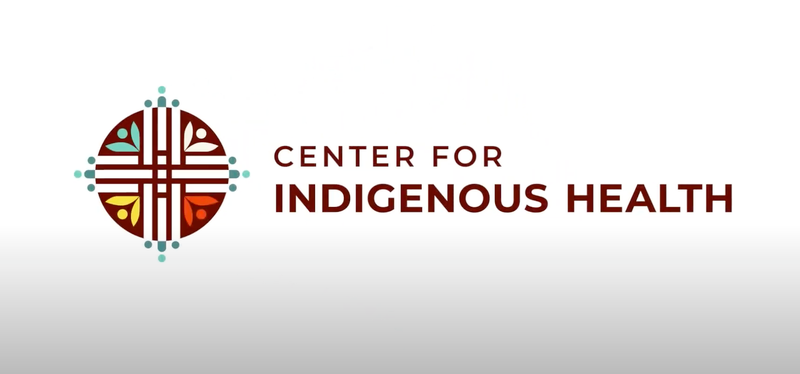
- Details
- By Elyse Wild
A new website launched by the Center for Indigenous Health at Johns Hopkins Bloomberg School of Public Health aims to guide tribes in spending funds from the tribal opioid litigation settlements.
Various settlements between manufacturers and distributors of opioids and hundreds of federally recognized tribes total $1.5 billion. The funds will be allocated to tribal communities over the next 15 years.
Andrea Medley (Dadens Yahgu ‘laanas Raven Clan, Haida Nation), a research associate at the Center, told Native News Online that as announcements about the settlements were made, she and her colleagues noted that there existed guiding principles for states (opioid settlements to state and local governments total $50 billion so far), but not for tribal communities.
The team at the Center for Indigenous Health posed the question to their networks: “Can we work with what has already been created, or do we need to create principles specific to tribes?
Medley said the answer was clear.
“We needed to create specific principles for tribes,” Medley told Native News Online. “We needed to look at the unique challenges and strengths of tribes.”
Working in collaboration with an Indigenous Advisory Council consisting of Indigenous and allied researchers, tribal leaders, service providers, and tribal community members, the Center drafted five principles for tribes spending opioid settlement funds.
Those principles include:
- Support cultural and traditional healing in your community
- Invest in reciprocal learning and partnerships across tribes
- Healing support for families; invest in parent, caregiver, and elder resources
- Sustain and enhance substance use services for youth
- Create opportunities for holistic well-being
More than 103,000 Americans died in opioid-related incidents in 2022, according to the Centers for Disease Control and Prevention (CDC). That’s up more than 200% since 2000, according to CDC data. As overdoses soar throughout the country, driven by the opioid crisis and the proliferation of synthetic opioid fentanyl, Native American communities are among the hardest hit.
While Americans of all races and ethnicities have been affected, the proliferation of opioid deaths has disproportionately affected Black, Indigenous, and People of Color (BIPOC) communities. In 2020, Native Americans’ opioid mortality increased 39% over the prior year — the second-highest rate of increase behind African Americans, according to the CDC.
As tribes across Indian Country contend with the opioid crisis and overdose crisis, many are embracing culturally-centered harm reduction — practice and public health policies aimed at reducing the negative outcomes of drug use, like overdoses, infectious disease, and death — to save lives in their communities.
The Tribal Principles, created through discussions and listening sessions, reflect that.
“What has been working [in tribal communities] are programs that get the whole community involved, programs that include people who are actively using substances and meet their needs, you know, not just working with people in recovery,” Medley said.
In February of 2022, hundreds of federally recognized tribes reached a settlement of $590 million with the nation’s largest makers and distributors of opioids, including pharmaceutical giant Johnson & Johnson. Most recently, in August, grocer Kroger Co. agreed to pay tribes in areas where it operates $34 million.
Those settlements were preceded in 2021 by a $75 million payout awarded to the Cherokee Nation from three of the nation’s largest drug distributors: AmerisourceBergen, Cardinal Health and McKesson.
Cherokee Nations’s investment of the opioid payout funds has been covered in the media. Among the tribe’s multipronged opioid response strategy is an $18 million behavioral health facility, set to break ground later this year; a $5 million endowment to encourage Cherokee Nation citizens to enter the behavioral health field and work in the tribe’s behavioral health sector; and $10 million for harm reduction and innovative addiction recovery programs. The investments, Cherokee Nation Principal Chief Chuck Hoskin said, are representative of a long-term, holistic approach that centers Cherokee-led solutions.
“We want to make investments that meet people where they are,” Cherokee Nation Principal Chief Chuck Hoskin told Native News Online. “And where they are is on a spectrum of dealing with this crisis. Some are active users, so we invest in harm reduction to keep the community as healthy as possible and open up potential paths to healing. There are also many seeking treatment, and that is where he had a particular gap that we are addressing by investing in drug treatment centers that we will operate, as opposed to sending people to other facilities beyond our control where we can’t shape the healing that happens.”
A representative from the Cherokee Nation is on the Tribal Principles Indigenous Advisory Committee.
Medley said that as the Center engaged in listening sessions and solicited input from tribal community members and experts in shaping the principles, an important thread emerged.
“The emphasis on culture across every conversation proved how important it is that we are having this conversation as Indigenous people, amongst ourselves,” Medley said. “Seeing how important culture is in our lives as Indigenous people was really powerful and is emphasized in the tribal principles.”
Click here to view the Tribal Principles.
Tell Us What You Think
More Stories Like This
USDA Expands Aid for Lost Farming Revenue Due to 2025 PoliciesTwo Feathers Native American Family Services Wins 2026 Irvine Leadership Award
Bill Would Give Federal Marshals Authority to Help Tribes Find Missing Children
Indian Health Service to Phase Out Mercury-Containing Dental Amalgam by 2027
End of Enhanced Obamacare Subsidies Puts Tribal Health Lifeline at Risk


